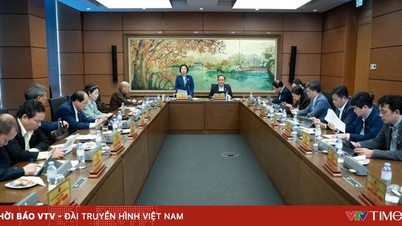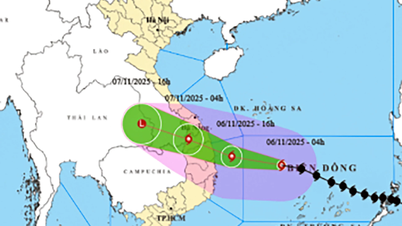Online shopping has become a habit for many people. However, along with the convenience comes many worries, such as the goods not being as advertised, difficulty in returning, or not knowing who to complain to when a dispute arises. Protecting consumers in the digital environment is therefore becoming an urgent requirement. The National Assembly has discussed the draft Law on E-commerce in order to create a clearer legal framework, so that online shopping is safer, more transparent and more trustworthy for both buyers and sellers.
Many delegates said that e-commerce can only develop sustainably when sellers are identified. Products must have their origins clearly declared, e-commerce platforms must be responsible for their advertising, and violations must be strictly handled.
Ms. Doan Thi Thanh Mai - National Assembly Delegate of Hung Yen province said: "Consumers are currently very concerned about counterfeit goods, fraud, system exposure, and personal information exposure when registering to buy and sell online. I suggest that the drafting committee should have regulations requiring the identification of sellers and buyers through the national electronic identification system. Clearly define the joint responsibility of e-commerce platforms when fraud occurs."
Mr. Nguyen Minh Duc - National Assembly Delegate of Ho Chi Minh City commented: "There is no separate provision regulating fake reviews, also known as fake reviews. Using automatic software to fake reviews of a series of products. In reality, there are only 100 people transacting in a month, but millions of people review, making customers believe."
Mr. Nguyen Ngoc Son - National Assembly Delegate of Hai Phong City shared: "Livestreaming on network platforms, in reality, paid advertising content is not clearly labeled, causing confusion for consumers, lacking transparency regarding advertising and content on livestream".
Delegates also proposed the need for a digital consumer protection fund, an automatic refund mechanism, and even a department to receive and respond to consumer feedback related to e-commerce transactions.
For social media influencers such as KOLs and KOCs, there should be binding sanctions to jointly take responsibility for false advertising.
Source: https://vtv.vn/bao-ve-quyen-loi-nguoi-tieu-dung-tren-thuong-mai-dien-tu-100251104054723193.htm









































![[Photo] Panorama of the Patriotic Emulation Congress of Nhan Dan Newspaper for the period 2025-2030](https://vphoto.vietnam.vn/thumb/1200x675/vietnam/resource/IMAGE/2025/11/04/1762252775462_ndo_br_dhthiduayeuncbaond-6125-jpg.webp)
![[Photo] Opening of the 14th Conference of the 13th Party Central Committee](https://vphoto.vietnam.vn/thumb/1200x675/vietnam/resource/IMAGE/2025/11/05/1762310995216_a5-bnd-5742-5255-jpg.webp)











































































Comment (0)